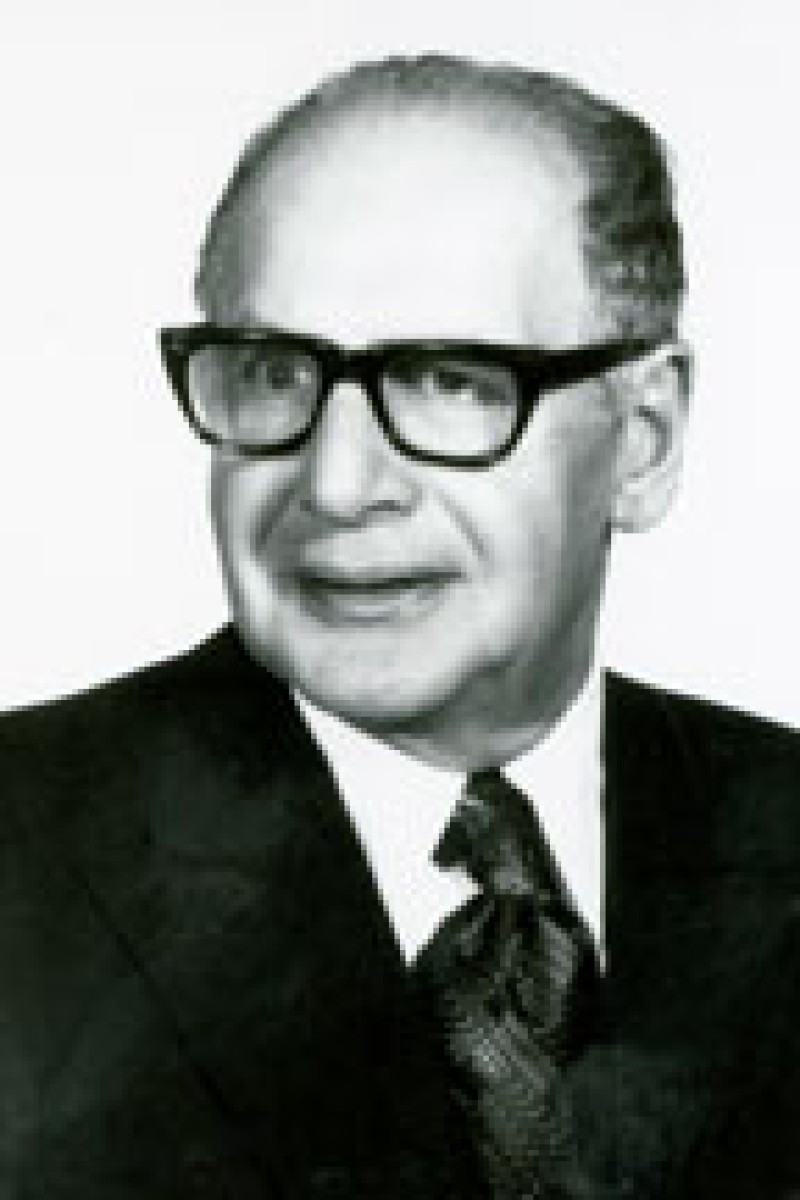Leonard J. Stern
Geoffrey Stern characterized his father as a humanitarian, citing Leonard J. Stern’s many years of work for Franklin County charitable organizations and service to Temple Israel. Justice Stern also was an advocate for the modernization of Ohio’s courts, served as the first disciplinary counsel to the Supreme Court and ruled on cases before the Court of Claims of Ohio.
Stern was born in Cleveland to Benjamin and Hermine Markovitz Stern on Oct. 4, 1904. Leonard managed his father’s small grocery store to support his education through Cleveland-Marshall Law School. Stern believed that managing the store and interacting with its customers helped to shape his legal philosophy. Stern graduated from Cleveland-Marshall in 1926, was admitted to the Ohio bar and went into private practice in Cleveland later that year. Before leaving Cleveland, Stern served as a bailiff for the Cuyahoga County Court of Common Pleas.
Stern and his family moved to Columbus in 1939, when he accepted the post of corporate counsel in Ohio Secretary of State Earl Griffith’s office. In 1940, Stern was appointed executive secretary to the Ohio Board of Public Works. He held the post for six years. After leaving the board, Stern remained in Columbus and went into private law practice.
Gov. James A. Rhodes appointed Stern to the Franklin County Court of Common Pleas in 1965. Stern campaigned successfully the following year for a full six-year term.
Stern was elevated to the 10th District Court of Appeals by Gov. Rhodes in 1969. At the time of Stern’s appointment to the appeals court, all five of the 10th District Court judges were Republicans.
Gov. Rhodes appointed Stern in August 1970 to the position vacated on the Supreme Court by Justice C. William O’Neill, who had been appointed by Gov. Rhodes as Chief Justice. Stern ran unopposed in the fall 1970 campaign for a full six-year term. He was unable to seek re-election in November 1976 since he passed the 70-year age limit for judicial offices.
Justice Stern wrote in Goodyear v. Local Union No. 200 (1975) to uphold decisions by a labor arbitrator and the 4th District Court of Appeals that disability maternity leave could not be treated differently from other disability leave. The Goodyear Tire & Rubber Company argued that the labor arbitrator exceeded the guidelines of the labor agreement with the United Rubber Workers by applying federal Equal Employment Opportunity Commission rules and regulations. The arbitrator used the commission’s rules to order Goodyear Tire & Rubber Co. to treat pregnancy and maternity leave equally with other types of temporary disability leave. Stern’s opinion said, the “parties to the pension agreement specifically agreed that it could be modified as necessitated by statute or regulation. The arbitrator’s decision shows that is what he did.” Stern said the Supreme Court would not overturn the arbitrator’s decision without evidence of fraud, misconduct or unjust irregularity.
After his retirement in 1976, Stern served as the first disciplinary counsel to the Supreme Court and as a member of the Ohio Court of Claims. Stern was a past president of the Columbus Bar Association and served on the American Bar Association's’ Committee on Ethics and Professional Responsibility.
Stern married Anastasia Percin in Cleveland on Nov. 15, 1931 and the couple had two children. He died May 21, 1988. A funeral was held at Columbus’ Temple Israel and burial took place at Forest Lawn Memorial Gardens and Mausoleum in Columbus.

b. Oct. 4, 1904
d. May 21, 1988
127th Justice of the Supreme Court of Ohio
TERM
Aug 1, 1970
to Aug 1, 1977
